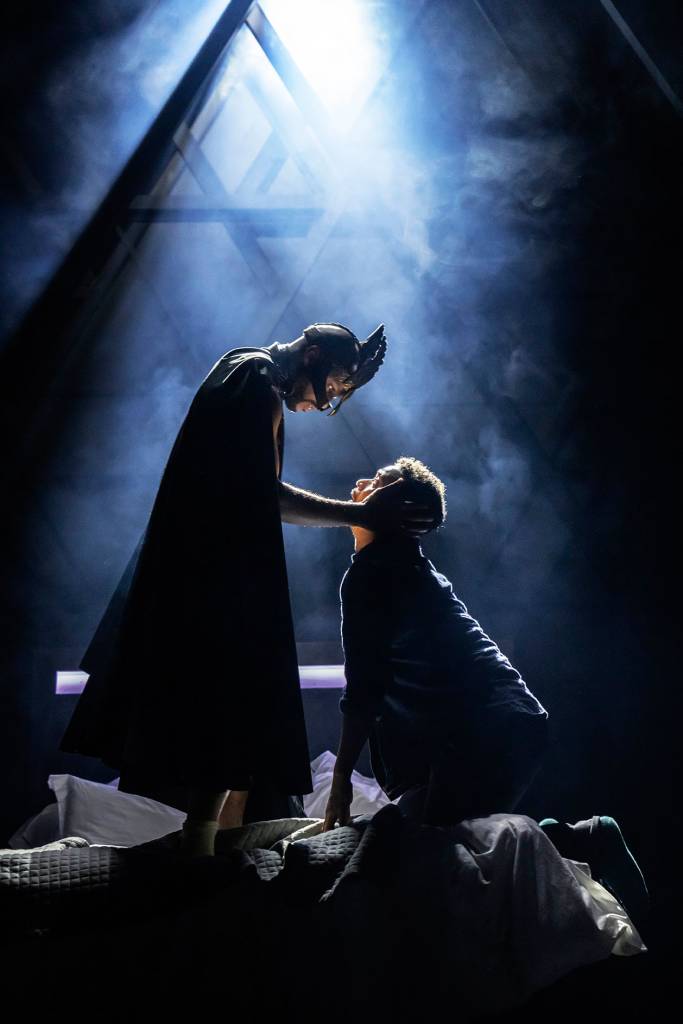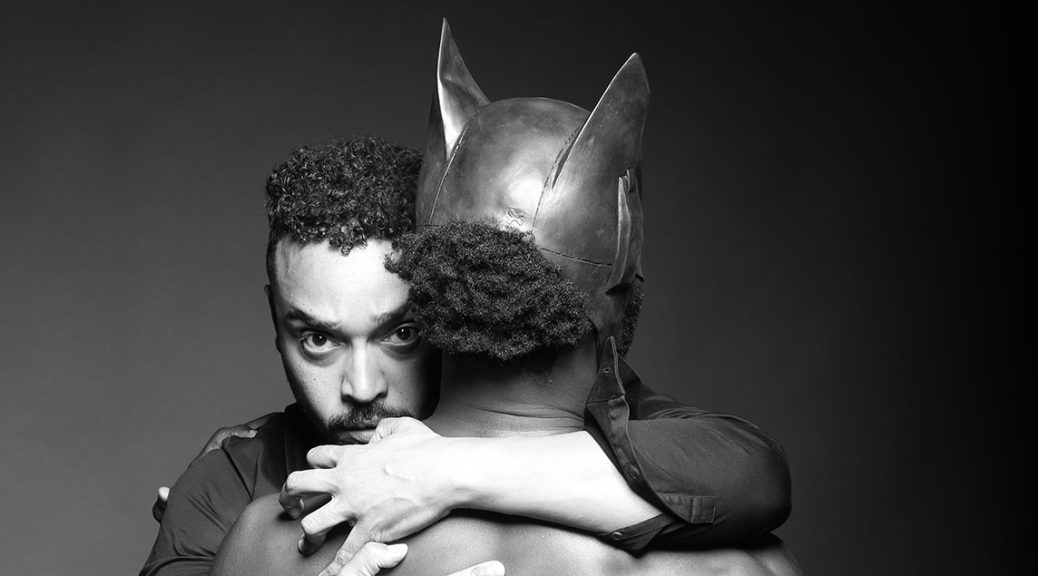 (4 / 5)
(4 / 5)
With the increased popularity from For the Black Boys, which originated at Royal Court and exploded into the theatre scene, it is great that the baton is continued with another play based on black culture and even more emphasis on its queer community.
BLACK SUPERHERO is the story of David; struggling with his past, present and future, a life of drugs, drink and sense of being unsuccessful, he is also in love with his friend who happens to be a famous acting superhero. We see David struggle with his unrequited love, of forces dragging him back to his vices and the memories of a not so idyllic childhood that his sister encountered. Life is passing him by, and so is everyone else.
True Royal Court style, the set is ambiguous and futuristic – there is a sense of something you may see in a Marvel movie; the Superhero’s secret hideout, or even the villain’s lair, with the set almost cutting away to reveal new scenes. This is emphasised with moments of David’s imagination, when he pictures his love interest in his starring role, flying down into the set in his tights and mask. There’s the constant feeling of displacement but also familiarity; where you can set this play at any time or any place. However, with the themes of race and queerness, we can only hope that societal discrimination is improved if the production were to be staged again in the future and therefore not so realistic.
Each character is fully formed and naturalistic – they all have their own quirks and opinions, but none are stereotypical. This is a great and very real approach and especially opens up the cultural themes for anyone who doesn’t sit within the black or queer communities. All the performers bounce off each other, and so their relationships feel fully realised and real. We believe in David’s past and his trauma; we believe in his and his sister’s relationship and we believe in the heartbreak that comes along with the story. We very much feel as if we are walking into these rooms, breaking down the wall and intruding into life.
While a brilliant and emotional play, one that many can identify with on lots of different emotional and cultural levels, there felt a slight anti-climax with its narrative. Perhaps being so used to something happening in a crescendo or out of the blue at Royal Court that almost slaps you surprisingly in the face, this conclusion and tying up of relationships and issues felt perfectly normal and a “happy ending” many would wish to see. There’s nothing to say that this was wrong but for BLACK SUPERHERO, I very much wanted something more, whether that be narrative-ly or production value-wise.


